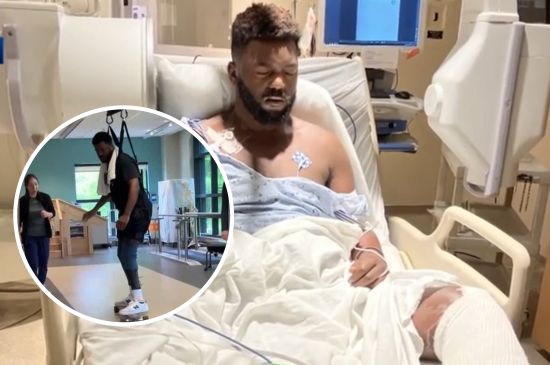
Nigel Smith, a 23-year-old from Edgewater and a former high school athlete, had no warning signs before his life took a sudden turn.
What started as mild flu-like symptoms at a New Year’s Eve gathering quickly became a medical emergency.
After a visit to urgent care revealed dangerously low blood pressure, he was rushed to the hospital, where doctors diagnosed him with a severe blood infection caused by group A strep.
Nigel’s condition worsened. His heart, liver, and kidneys began to shut down. He became septic, and in order to save his life, doctors had no choice but to amputate both of his legs.
The infection had spread too far and too fast. What followed was a long, uncertain recovery filled with both physical and emotional challenges.
Despite the immense change, Nigel refused to let his condition define what he could or couldn't do.
As soon as he began rehabilitation, he set goals for himself—big ones. He was determined to walk again, to be active, and to return to the things he loved before the infection turned his life upside down. One of those things was skateboarding.
Skateboarding had been a big part of Nigel’s life growing up. After losing his legs, he knew it wouldn’t be easy, but he didn’t want to let go of it.
At Orlando Health, his physical therapist, Erin Schultz, worked closely with him to develop a plan that would make it possible for him to get back on a board. Since there weren’t many examples of people in similar situations, they had to experiment and learn along the way.
With the help of a harness system that supported part of his body weight, Nigel began to regain balance and control.
Progress was slow but steady, and each small step brought him closer to moving freely again.
What impressed his care team the most was his mindset. From the start, he spoke about the things he still wanted to do. He didn’t wait to see what he could manage - he made it clear he planned to do more than what was expected.
His goals went beyond skateboarding. He talked about biking, surfing, and taking on new challenges.
Amputation, for him, wasn’t a finish line but a starting point. He saw his recovery not as a return to normal, but as a chance to explore new limits and prove to himself that life was still full of movement and excitement.
For many, learning to walk again would be enough. But Nigel wants more than that. He’s moving forward with clarity, focus, and the kind of drive that doesn’t come from being told what’s realistic - it comes from deciding what’s worth doing.
Skateboarding, once a hobby, has become a symbol of that drive. And while he may be rolling on prosthetic legs now, his determination is carrying him farther than ever.
